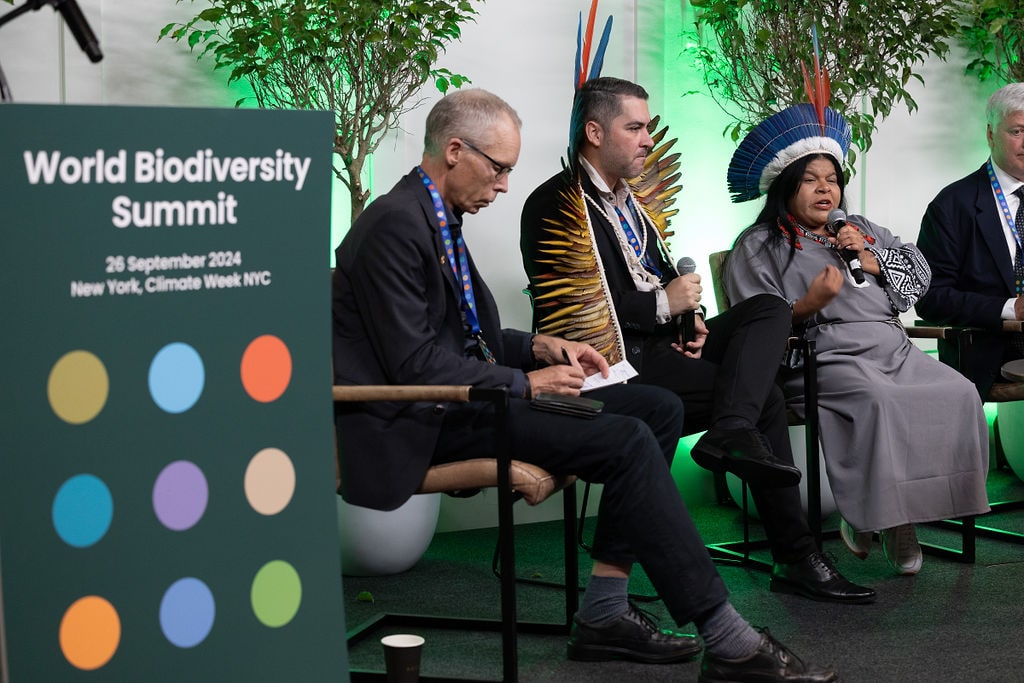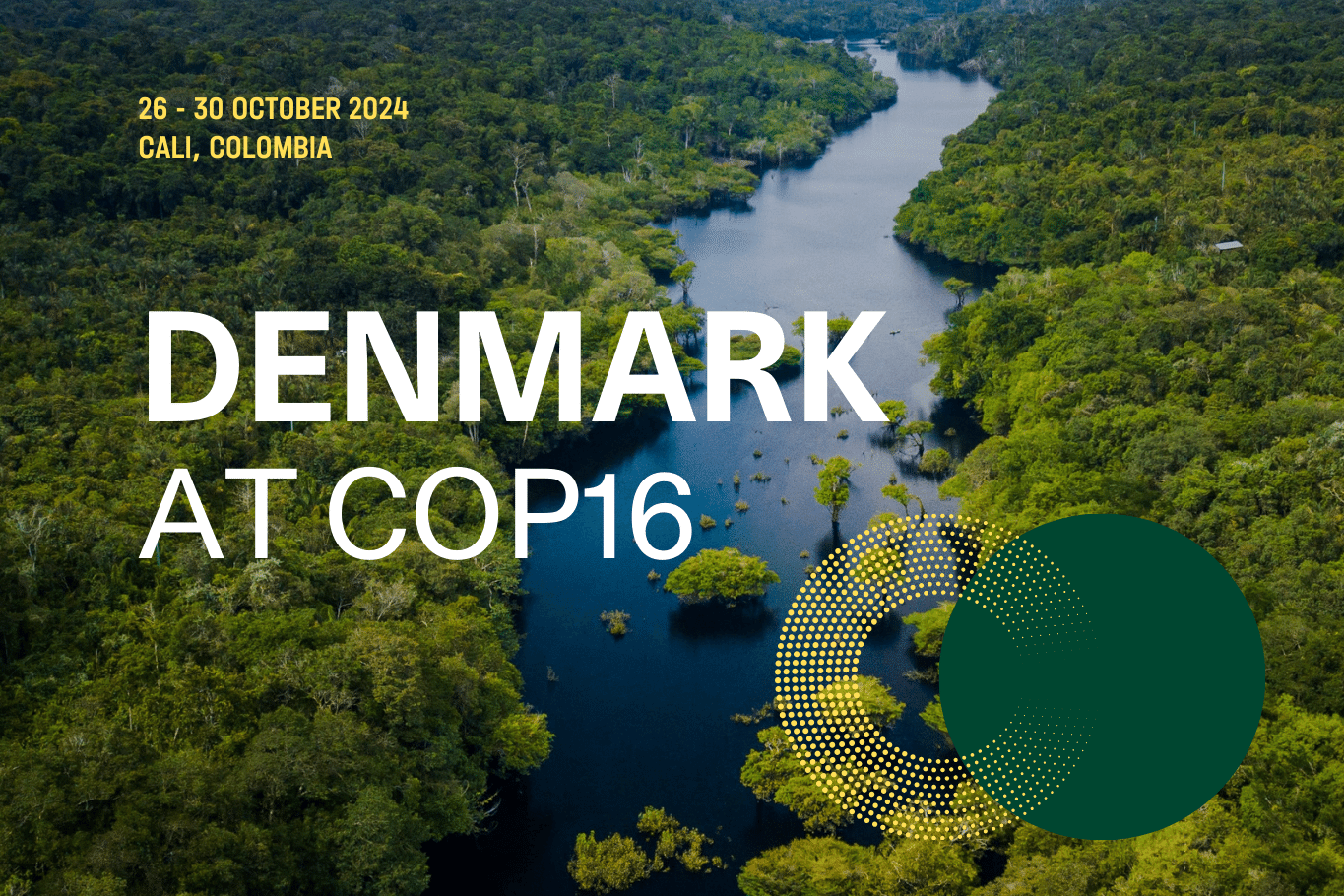Roundtable on biodiversity and finance organised by State of Green, Bloomberg Philanthropies and World Climate Foundation
Image credits: World Biodiversity Summit
News
Biodiversity
Biodiversity COP
Green financing


The world’s economic output is dependent on nature, but three-quarters of banks have weak or no policies to limit lending that could be harmful to nature. How can we invest our money for a positive outcome that not only lowers mitigation but also makes positive impacts on nature? And how do we make sure that materials in the supply chain don’t have negative impacts on biodiversity?
These were the key questions raised at the roundtable during last week’s New York Climate Week which brought together key stakeholders to explore strategies for effective and integrated biodiversity financing aligned with the Kunming-Montreal Global Biodiversity Framework.
Bloomberg Philanthropies kicked off the event by highlighting that the carbon buffer that nature has offered is gone. This poses significant physical and financial risks. Participants discussed how companies should be focusing equally on nature risks and restoration as well as on lowering carbon to help businesses long term. Doing good business is not just about revenues tomorrow but about long-term financial security.
A main obstacle for more investments in biodiversity is however that it is not always a good business case, which leaves biodiversity efforts to be driven by voluntary action. We need better in-house expertise, more data and supportive regulation from the EU, and we need to build the political will to shift the system globally. Businesses have the power to push for targets and legal measures, and leading companies will have an advantage doing so. As a participant said:
“We are destroying the spaceship that keeps us all going. Investing better, will help us all as we depend financially on a functioning ecosystem.”
Rainforests, wetlands, and the oceans – the entire biosphere takes up carbon making it a powerful engine. These systems are however losing their capacity to absorb carbon dioxide due to climate change. This was emphasised by Professor Dr. Johan Rockström, Director at Postdam Institute for Climate Impact at the World Climate Summit:
“Restoring nature is vital if we want to stay below 1.5. It is not enough to phase out gas, coal and oil.”
It is thanks to biodiversity that we have been able to emit as much as we have as nature so far has balanced out our emissions, but now we are witnessing nature collapse and this has massive consequences for the climate as well. For too long the urgency of addressing the biodiversity crisis has been underscored by both the public and private sectors globally.
“We all collectively depend on a functioning ecosystem. If these territories are stressed humanity is stressed, and we have a rapidly closing window to keep this resilience in balance. We need legal binding measures to protect biodiversity,“ said Dr. Johan Rockström.
Climate and biodiversity are fundamentally interconnected. When the temperature rises it increases ocean acidification which means that the oceans can no longer absorb the same amount of carbon, and when we clear the Amazon rainforest it is no longer able to create its own rain leading to a lack of freshwater and water supply for agriculture in South America.
Another key point at the summit was that Indigenous people are key in protecting biodiversity. They make up 5 pct of the world’s population but they protect 80 percent of the world’s remaining biodiversity.
Following the World Biodiversity Summit, the course is set south when global leaders gather to discuss biodiversity at COP16, which will take place in Cali, Colombia, from 21 October to 1 November 2024. As biodiversity takes centre stage, Denmark is sending its first official business delegation to support coordinated efforts between public organisations and private solution providers. This joint delegation, led by the Danish Ministry of Environment, the Ministry of Foreign Affairs of Denmark, Danish Industry, and State of Green, reflects the commitment to promoting biodiversity through collaborative initiatives.
At COP16 State of Green will be co-hosting events on public-private partnerships, the responsibility of businesses, circular economy and more. For any enquires get in touch with Iver Høj Nielsen at [email protected].

The Danish Ministry of Environment, the Ministry of Foreign Affairs of Denmark, Danish Industry and State of Green are launching a joint Danish delegation to COP16. The initiative has the purpose of coordinating Danish interests to be able to present stronger messages and showcase the Danish tradition of public-private partnerships.
Discover Denmark at COP16